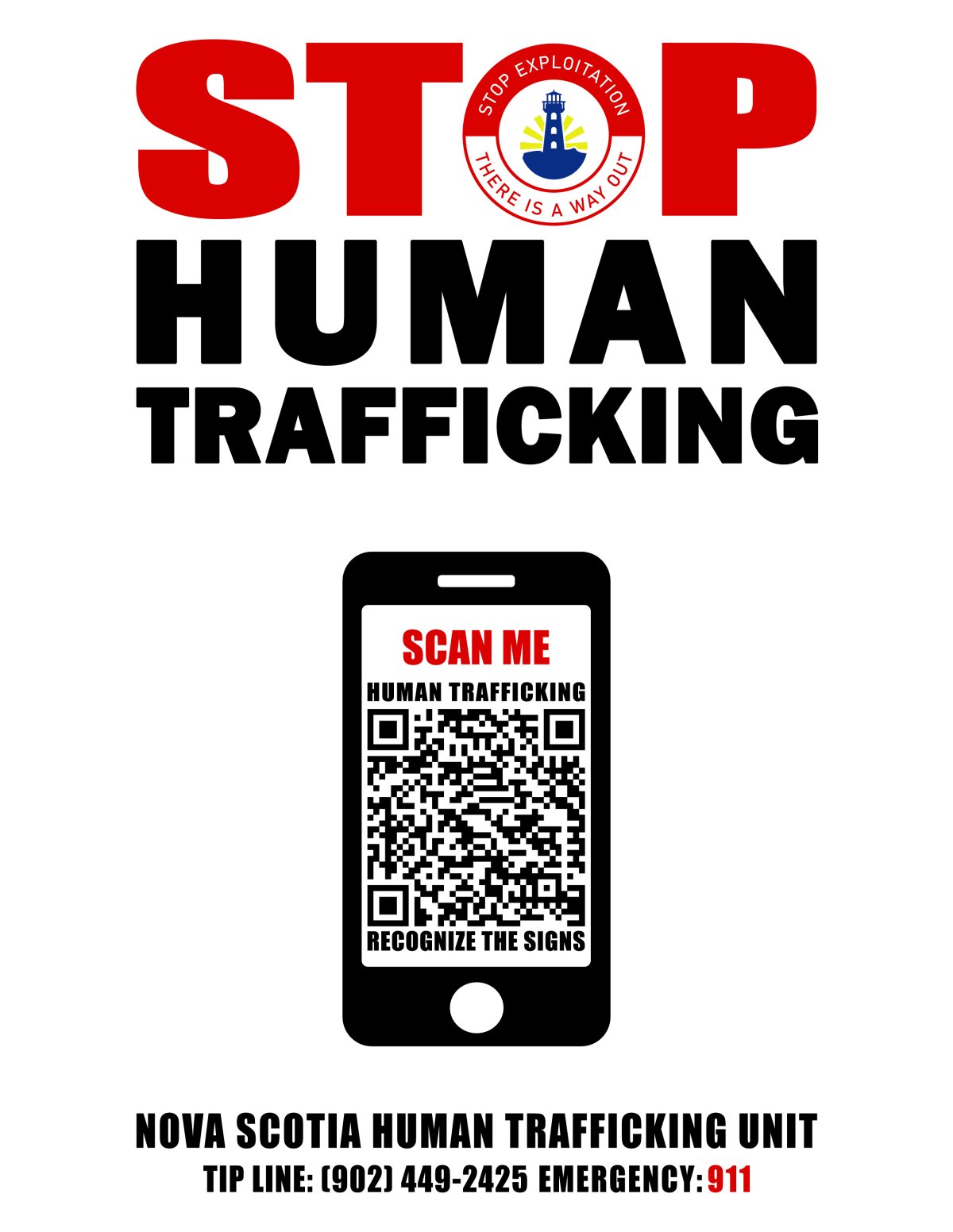A new quick response (QR) code has been launched in Nova Scotia to help provide information on recognizing and reporting human trafficking.

The Nova Scotia RCMP made the announcement on Tuesday, Feb. 22 — the second annual Human Trafficking Awareness Day.
In a release, the RCMP said the new codes are included on posters and stickers that will be distributed throughout the province, and will provide “direct access to information on how to recognize the signs and report human trafficking in Nova Scotia.”
When scanned, the code redirects users to a Nova Scotia RCMP website page that includes a list of resources about recognizing and reporting trafficking.
“In addition to calling the Nova Scotia Human Trafficking Unit tip line at (902) 449-2425, the QR code provides discrete access to resources and a connection to members of the Provincial Human Trafficking Unit,” said Insp. Murray Marcichiw, the RCMP officer responsible for the Nova Scotia human trafficking unit and the officer in charge of major crimes, in the release.
“It is another way to enable those impacted by human trafficking to seek help and empower residents of Nova Scotia to know the signs, report and help disrupt Human Trafficking in our province.”
The RCMP said it’s possible that human trafficking victims might not realize they’ve been recruited. Someone could be a victim of human trafficking if they:
- Are in a new relationship and “are treated like a prince or princess”;
- Must regularly check in with someone via cell phone or text;
- Have a change in physical appearance, like new hair or nails;
- Receive expensive gifts for no reason;
- Start wearing new clothes, lingerie, and designer brands;
- Withdraw from friends and family;
- Are no longer in control of their money or personal documents like passports and driver’s licences;
- Started a job that “sounds too good to be true.”
Nova Scotia, one of Canada’s smallest provinces, has the highest reported rates of human trafficking in the country, according to Statistics Canada. In 2019, Halifax had the second-highest number of reported incidents, after Toronto.
“Human trafficking has been hiding in plain sight in our communities for many decades,” said Charlene Gagnon, manager of advocacy for YWCA Halifax, in the release.
“We must see it and name it before we can respond to it effectively.”





Comments